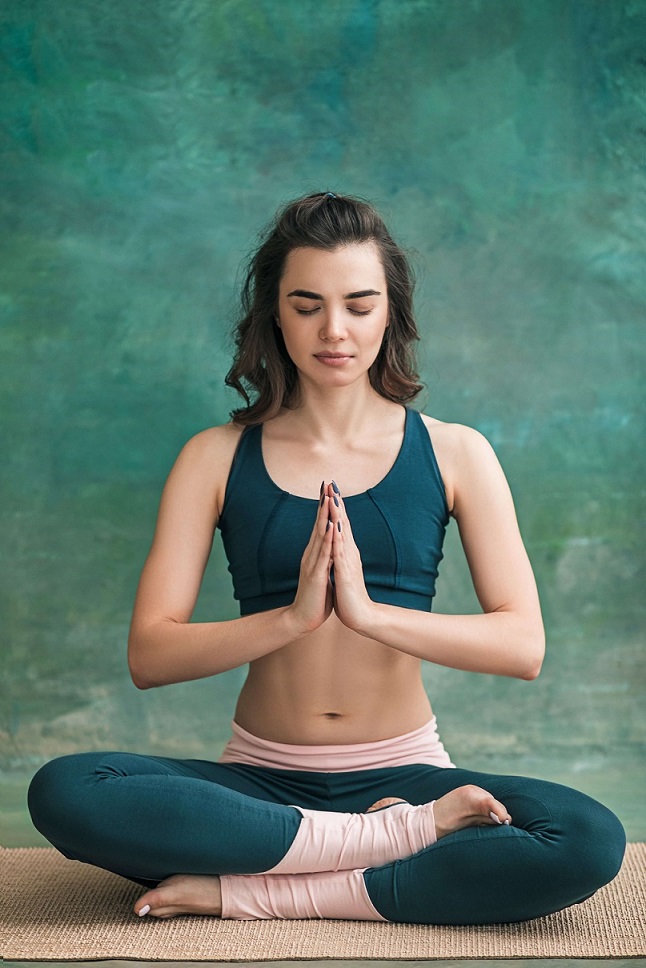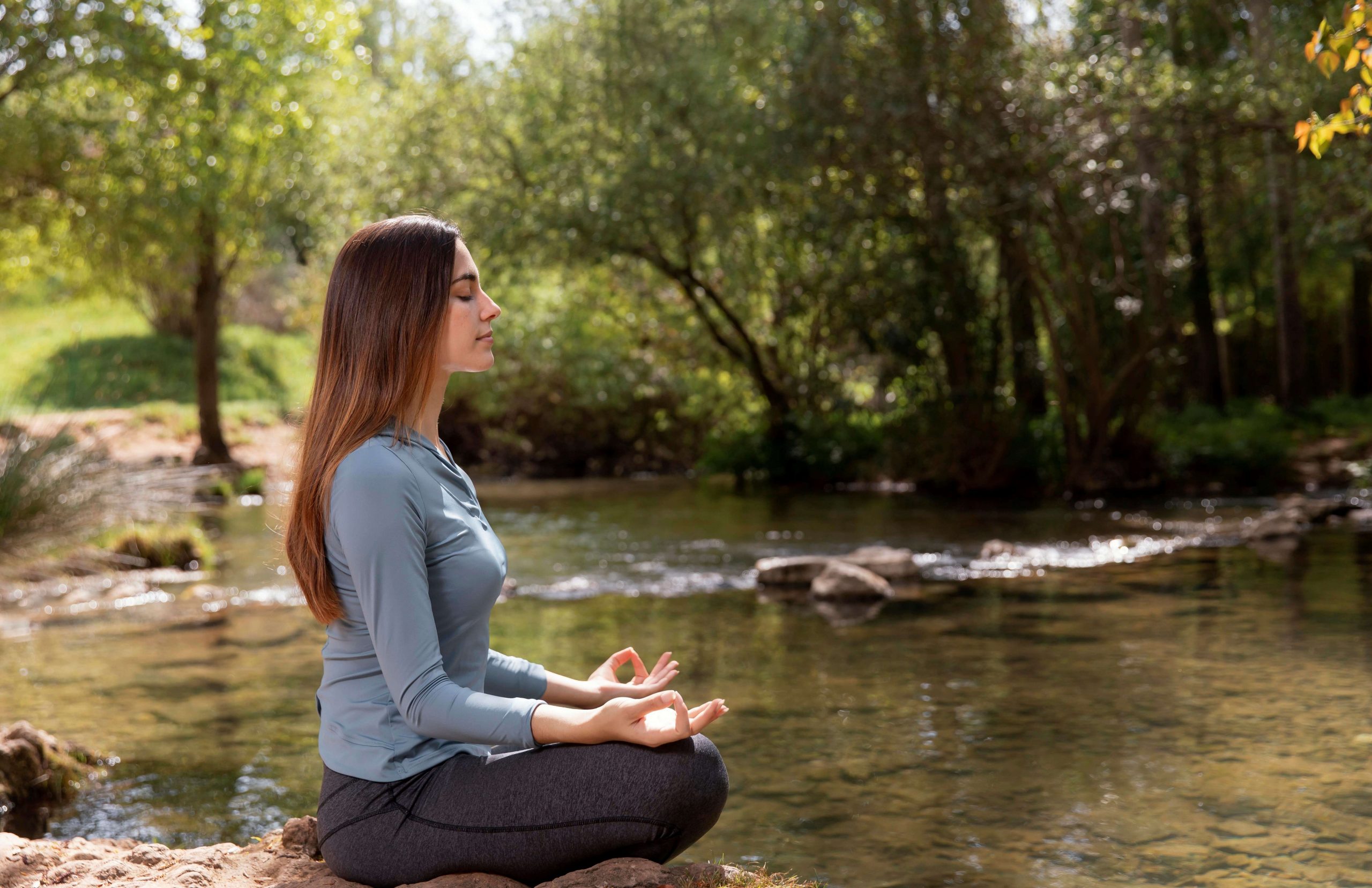Disclaimer:
This article is for information purposes only. It is not a substitute for medical advice or treatment. Seek medical care for your treatment.
What is meditation?
Meditation is an ancient practice that calls for focusing or unloading your mind using a fusion of mental and physical techniques. It helps in developing deep concentration.
There are various forms of meditation. Initially meditation was used to strengthen understanding of the holy and spiritual forces of life. Lately, people meditate to ease, minimize anxiety, lighten up their mood, to get peaceful sleep and to increase level of tolerance and to de-stress themselves. People meditate to quit smoking and drinking. It also acts as a medicine for mind and body. Meditation produces relax and reposeful mind. It eradicates all the negative and perplexing thoughts by keeping you more focused. It elevates recognition of yourself and your surroundings. The adulation of meditation is increasing day by day because of its significant health benefits.
Benefits of meditation
Physical and mental benefits of meditation are:
- Building ability to manage stress
- Increasing self-consciousness
- Focusing on the present
- expanding attention span
- Eliminating negative thoughts and emotions
- Growing imagination and creativity
- Building up patience and tolerance
- Decreasing high blood pressure
- Lowering resting heart rate
- Improving sleep
- Minimizing memory loss
- Helps in controlling pain
- Helps in fighting addictions
- Improving emotional health
- generating kindness
- Decreasing the chances of dementia and Alzheimers
Elements of meditation
Some common elements of meditation are:
- Focused attention
- Calm and relaxed breathing
- A quiet spot
- Forbearing attitude
- A comfortable place

Types of meditation
There are 9 types of famous meditation practices:
- Spiritual meditation emphasizes on thorough understanding of spiritual or religious meaning and association with a supreme power.
- Mindfulness meditation helps you to stop ruminating about past and urges you to remain aware and live in the present moment.
- Focused meditation is focusing deeply by involving all the five senses.
- Movement meditation includes walking, gardening, qi gong, tai chi, yoga and other tender forms of movements.
- Mantra meditation uses recurrent sound, phrase or word to unclog your mind.
- Transcendental meditation is the spiritual form of meditation in which one comfortably sits, breathes slowly and focuses on repeating a mantra. The aim is to surpass the person’s current state.
- Progressive relaxation or body scan meditation persuades practitioners to scan their bodies to notice the areas of tension. The objective is to determine the tension areas and try to stress free it.
- Loving-kindness meditation is to develop an attitude of love and empathy towards any stress causing thing or person, even your foes.
- Visualization meditation involves imagining a beloved person or a positive scene by involving all 5 senses. It is a steady technique that helps in upraising feelings of tranquility, relaxation, peace and positivity.
5 ways meditation can help reduce anxiety

Abrupt hardships fail us to manage anxiety and fight back successfully. Adversity makes us more vulnerable to anxiety and hypertension. By regularly performing mediation we can overcome our fears and anxieties. Research recommends that meditation should be introduced at work places or schools so that everybody learns the art of taming their minds and bodies to survive the stress of life. These 5 ways of meditation can actually help us reduce our anxiety:
1) Minimize stress
Everyday stress can be debilitating for health. Mostly people meditate to lessen stress and anxiety. Meditation tames our minds to successfully survive the adversities of life. Stress aggravates stress hormone cortisol, this lets out inflammatory chemicals called cytokines. This further leads to sleeplessness, high blood pressure, fatigue, obscure thinking and nurtures stress. Researches reveal that meditation boosts symptoms of stress-linked issues, including grumpy bowel syndrome, inflammation caused by stress, post-traumatic stress and fibromyalgia. Meditation keeps your mind and body in a tranquil state.
2) Helps control anxiety
Meditation lessens stress levels, which also transfers little anxiety. Anamysis show that mindfulness meditation minimizes anxiety especially in people with high anxiety and generalized anxiety disorder. It also enhances your reaction towards stress and your way of coping with it. A study of 47 people with acute pain depicts that after 8-weeks of meditation, it reduces agony, anxiety and depression over 1 year. Mindfulness and Meditation exercises, for instance, yoga help in reducing anxiety levels because yoga practice benefits your body physically and mentally. Mediation diminishes all types of anxiety, be it a job related anxiety or school related anxiety. A study shows that workers who practiced mindfulness meditation app for 8 weeks handled anxiety nicely and felt more relaxed and healthy. Daily meditation helps with phobia, panic disorders, obsession, mood swings and bipolar disorder.
3) Refines sleep

Many people suffer from insomnia. Study shows that mindful meditation practice helps you sleep longer peacefully and assists in fighting with insomnia. Meditating redirect your negative thoughts that often lead to insomnia. Furthermore it can keep your mind and muscles more relax, which makes you more attuned to sleep.
4) Improves health

Meditation elevates physical health by lowering stress on the heart. With the passage of time increased blood pressure puts strain on heart to pump blood which leads to heart disorders. High blood pressure can contribute to the thinning of arteries called atherosclerosis which can cause heart attack and stroke. One study revealed that meditation reduces systolic blood pressure by 4.7 mm Hg and diastolic blood pressure by 3.2 mm Hg. Another study showed that practicing mediation for 7-9 months depicted a noteworthy decrease in the thickness of the walls of arteries; on the other hand those who didn’t meditate showed an increase. The result revealed that meditation could possibly bring an 11% reduction in the likelihood of heart attack and 8-15% decrease in the danger of stroke. A study concluded that meditation helps lowering blood pressure. This was more potential among older participants and those who already had elevated high blood pressure. Various meditation exercises produce alike improvements in blood pressure. Meditation tends to control blood pressure by calming the nerve signals that harmonize heart function, strain on the blood vessels and the fighting response. It boosts awareness in stressful situations.
5) May minimize age-related memory loss
Refinement in attention and lucidity may keep your mind young and fresh. Studies show that people who meditate show less decay in the hippocampus. This is the part of brain that contracts in people with Alzheimer’s. Meditation vipassana also elevates the brains cortical thickness and reduces the density of gray matter in brain areas (linked with stress) which shrinks with age.
Stress hormone, cortisol increases the chances of having dementia. Kirtan Kriya is a method of meditation that helps you to focus your thoughts. Studies carried out on people with age-related memory loss showed positive neuropsychological test results. Meditation nurture memory, attention and mental alertness. It enhances memory in dementia patients and helps patient’s family members to be more patient and anxiety free.
Conclusion
Everyone can practice meditation which can uplift their mental and emotional health. You can do it whenever and wherever you want without using any fancy equipment. Meditation groups and courses are also easily available if you want some company along with guidance. There are various styles of meditation which you can adopt according to your choice. Daily few minutes of meditation can be of great help to you.




